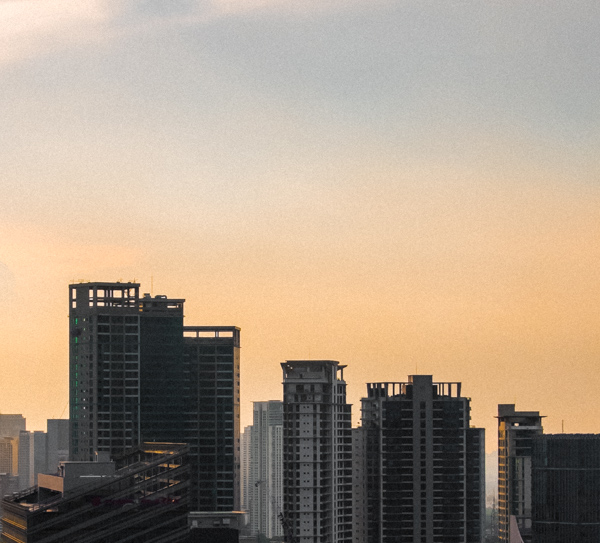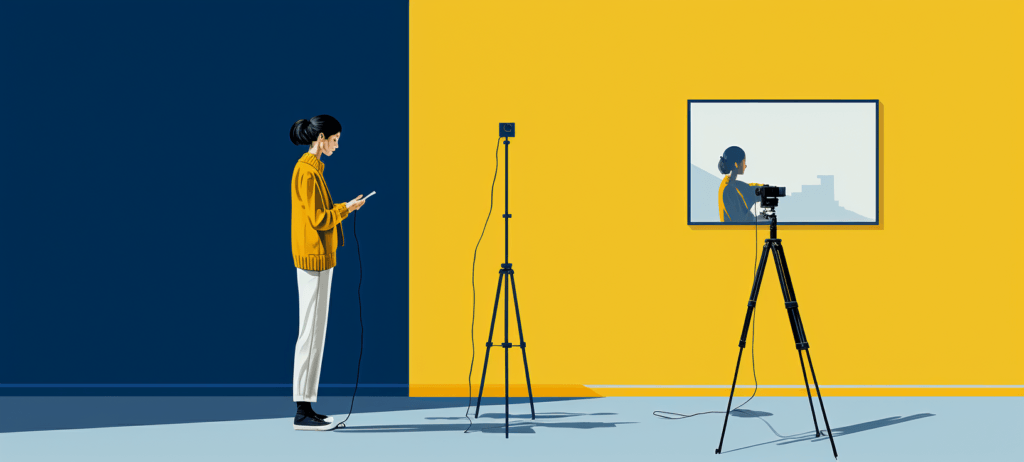- Home
- Blog
- Web Design 100 Things I Know About Photography
100 Things I Know About Photography
-
 9 min. read
9 min. read
-
 Trevin Shirey
Trevin Shirey VP of Marketing
VP of Marketing
- Trevin serves as the VP of Marketing at WebFX. He has worked on over 450 marketing campaigns and has been building websites for over 25 years. His work has been featured by Search Engine Land, USA Today, Fast Company and Inc.
I’ve spent the last half of my 20’s as a photographer. I’ve never taken a class or pretend to know everything about photography but spending so much time with it and obsessing over my work has left me with a few insights that I thought I might share with all of you. My list was inspired by a list written by talented street photographer, Eric Kim, about the things he’s learned about photography.
I recommend checking it out as well!
- There’s “correct” exposure and then there’s the right exposure.
- If you shoot digital, take care of your files. If you shoot film, take care of your negatives.
- Shoot RAW whenever you can. But if your camera doesn’t do RAW, don’t let that stop you from taking photos.
- Noise in a photograph does not mean it’s a bad photograph. Don’t be afraid of noise or grain. Most people will only see the photograph.
- Good gear does not mean good photography.
- Having an expensive camera does not make you a photographer, taking pictures does.
- Read your camera’s manual or at least skim it until you get a sense of how everything works. If reading is not for you, at least get to know your camera so you’re not fumbling around its buttons and dials.
- No camera is perfect. Every camera has its own quirks. Learn them and use them to your advantage.
- If you’re working on your photos on a computer, calibrate your monitor for color accuracy.
- Don’t trust a printer to do good prints until they give you good prints.
- Rule of thirds. Learn it. Use it.
- When in doubt, use the auto modes of your camera. They’re there for a reason. They’ll also teach you about exposure.
- If you want to get paid to take photos, make sure you get compensated properly. Whatever that means to you.
- Getting lucky is just as good as planning every detail of a photo.
- Take your time. Don’t rush your shots.
- Great photos are given souls in the darkroom – digital or traditional.
- Get close to your subject.
- Commit to getting better with every photo you take and you’ll actually get better.
- Technique is important but creativity and imagination is “importanter.”
- If you decide to create a portfolio, only include your best work.
- Have others critique your best work and listen to what they have to say.
- Study how light behaves.
- Throwaway photos should be thrown away.
- Camera is to photographer, as pencil is to illustrator. In either case, the end product is what matters, not the tools they used.
- Take photos of people. It’s a bit more challenging than doing still life photos but also more rewarding and more exciting.
- Landscape photography or nature photography isn’t just about making pretty images. They’re also about the process and the journey of getting the shot. There are literally millions of pretty images but only a few with truly amazing stories behind them.
- Photography builds confidence in shy people and humbles the most confident people.
- There’s no place for camera shake in photography. Stop convincing yourself that shaky images are OK. They’re not OK.
They are just blurry images.
- Learn about exposure.
- Learn to shoot in low light or at night.
- If you can bring a camera, you should always bring a camera.
- Don’t be discouraged by how difficult some aspects of photography can be. Just keep in mind that it won’t get any easier if you stop shooting.
- Show the world what you see, not what they want to see.
- A photo places you in the world even if you’re not in it.
- Content and subject is more important than technique because not everyone will understand or appreciate good technique but everyone will know what a good photo looks/feels like.
- Photography is for everyone.
- Thinking like a photographer takes time.
- If you didn’t get the shot, stop trying to convince yourself that you got the shot. Just do better next time.
- Be present.
- Make large prints.
- There are some photographers who become rich and famous but very rarely was that their initial intention with photography.
- Work on pleasing yourself first with your photos.
- Photos are meant to be seen. Show them off.
- Shooting with film is a pleasure.
- Shooting in digital is also a pleasure.
- Pick your moments. Sometimes you don’t need to take a picture. Sometimes you just shouldn’t take a picture.
- The more you shoot, the better you’ll be at recognizing nuances in color. Pay attention. Color is important.
- Don’t shoot in manual mode if you don’t know how to shoot in manual mode. You’ll only get poorly exposed photos and the lessons you learn from your errors come at the cost of missed shots.
- Learn to shoot in manual mode.
- Even the most experienced and talented photographers were beginners at one point in their careers.
- If one of your goals is to be able to make a living being a photographer, you have to network.
- Not everyone will like your work. That’s OK.
- Photography allows for perfectly captured moments. Keep that in mind and be aware of those moments.
- Not every photo you take is an art piece. Sometimes it’s just a picture.
- There are times when a point and shoot camera is better than a DSLR.
- There are times when a high-powered DSLR is what you really need.
- You will be terrible at taking photos of certain subjects and amazing at others.
- Street photography is not for everyone but everyone should try it at least once and try to learn something from it.
- Take photos of moments worth remembering, never of moments you’d want to forget.
- Make sure that when you press the shutter release, you’ll be able to live with yourself afterwards. After hundreds of thousands of shots, I can say that there were certain times when I wish I didn’t take a certain photo.
- When taking photos of strangers, a smile goes a long way.
- Shooting in a studio is not for everyone but everyone should try it at least once.
- Take a photography class or join a club or just shoot with others. Learning with others is great.
- When less experienced photographers ask for your advice, give them some advice. You’ll be surprised at how much you actually know about photography and you’ll actually help someone.
- Ask yourself what you want to get from a photo and let that guide your photographic choices. Pretty soon, you’ll instinctively choose the right exposure settings, the perfect composition, and you’ll choose the perfect opportunities.
- Try to sell some prints of your photos to see which of your photos people react to the most. Then think about those photos.
- Take care of your gear to keep it functioning properly.
- Don’t worship your gear to the point where you’re afraid to use it.
- The photos you’re hesitant to take are often the most rewarding, so just shoot and don’t let your doubts get the best of you.
- There are rules to good photography but they’re broken all the time.
- Technology will always have a role in photography. Learn to embrace it and use it.
- It’s Photoshop. It’s not magic. Don’t expect miracles.
- Find a way to organize your files or your negatives that works for you.
- What your eyes see and what your camera is able to see are two different things. Our eyes are much more powerful.
- Shoot what inspires you and keep shooting until you’re good capturing it.
- Low light photography forces you to be creative with how you expose and compose your photos.
- Natural light teaches you to pay attention to the quality of light around you.
- The best cameras are the ones that just get out of your way.
- Learn to use flash. They’re small, intense, light sources but make for some very powerful photography when used properly.
- Taking your photography seriously doesn’t mean you have to think about being a professional. It just means you want to take your photography seriously and take better photos.
- Copying other people’s work is just lazy. Instead, study their photos and apply what you learn in your own photography.
- Photography books have amazing production values and are beautiful to behold. Invest in a few books by your favorite photographers. You will not regret it.
- Good photography takes risk. No one ever takes a good photo without having something (i.e time, money, safety, well-being, comfort, reputation, etc.) on the line.
- You must create the conditions in which great photographic opportunities can happen. You have to get out there and place yourself in situations where you can take great photos.
- Eye-level viewfinders are the best.
- If you feel confident that you won’t drop your camera, try using it without a strap. Photography becomes a different experience when you can’t just hang your camera on your neck or shoulder.
- Post-processing isn’t something to be ashamed of. If you shoot RAW, you kind of have to post-process. If you shoot film, what do you think working in a dark room is all about?
Dodging and burning (ever heard of it?). Post-processing is, in some way, half the work of creating a photo and is an art form in and of itself.
- Find a workflow that allows you to actually enjoy the photos you take. Don’t leave them in your camera or on your computer. Work on them.
Share them with everyone.
- When you’re bored or have a little free time, forcing yourself to take photos is a great way to get out and do something amazing.
- If you are thinking of buying a tripod, invest in the best one you can afford. Good tripods are very good and will most likely be the last tripod you’ll ever buy. The bad tripods are really terrible and put your cameras at risk.
- Always keep your lenses clean.
- Keep your batteries charged.
- There’s no harm in stocking up on SD cards and a few rolls of film.
- Any shutter speed slower than 1/30th of a second needs a tripod.
- Sometimes “f/8 and be there” is all you need. Other times, you’ll need to dig a bit deeper.
- Study the lighting techniques of renaissance painters and the early impressionists. You’ll learn a lot about light.
- Start a year-long or longer photographic project and see how it evolves.
- Selfies are not self-portraits.
- Take photos of the things you like.
- Get to know your cameras and lenses intimately and learn how they behave in different situations.
- Keep shooting.
Tell us what you think in the comments section below and share some of your own insights with us!
-
 Trevin serves as the VP of Marketing at WebFX. He has worked on over 450 marketing campaigns and has been building websites for over 25 years. His work has been featured by Search Engine Land, USA Today, Fast Company and Inc.
Trevin serves as the VP of Marketing at WebFX. He has worked on over 450 marketing campaigns and has been building websites for over 25 years. His work has been featured by Search Engine Land, USA Today, Fast Company and Inc. -

WebFX is a full-service marketing agency with 1,100+ client reviews and a 4.9-star rating on Clutch! Find out how our expert team and revenue-accelerating tech can drive results for you! Learn more
Make estimating web design costs easy
Website design costs can be tricky to nail down. Get an instant estimate for a custom web design with our free website design cost calculator!
Try Our Free Web Design Cost Calculator


Web Design Calculator
Use our free tool to get a free, instant quote in under 60 seconds.
View Web Design CalculatorMake estimating web design costs easy
Website design costs can be tricky to nail down. Get an instant estimate for a custom web design with our free website design cost calculator!
Try Our Free Web Design Cost Calculator





